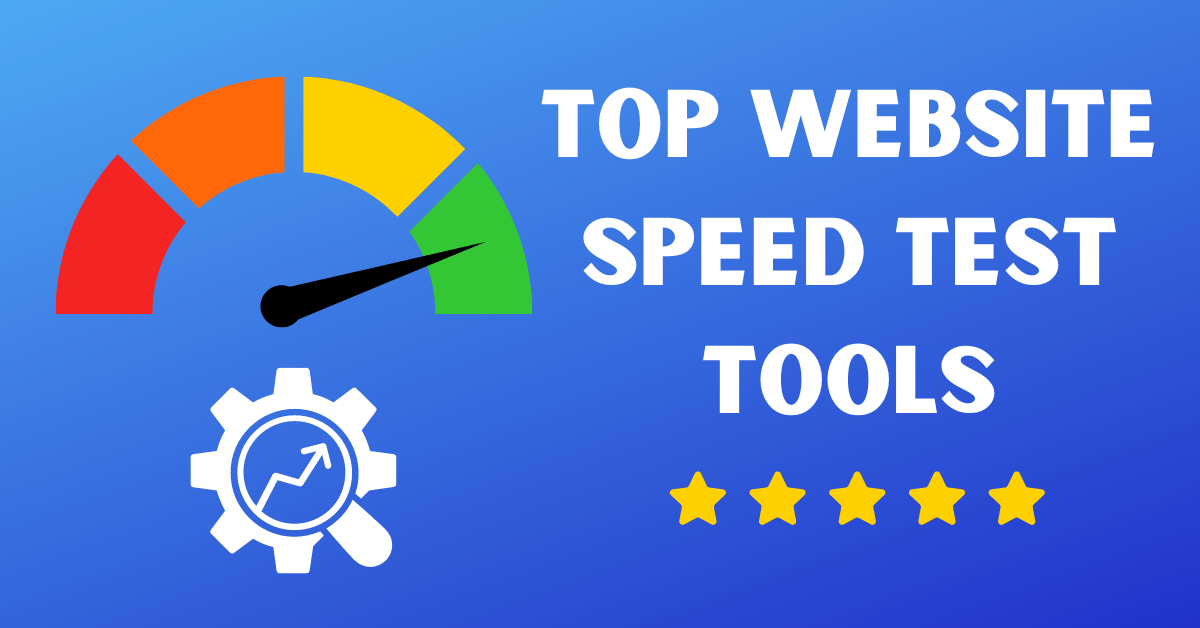For organizations looking to succeed online in the huge world of digital marketing, learning SEO is important. A effective SEO strategy is based on careful choosing and use of keyword research tools. For both SEO experts and beginners we explore the fundamentals of SEO in this detailed guide and present the top 5 keyword research tools. For those with experience in the field and aspiring business owners, knowing how to use these tools is important for improving your online presence and attracting targeted traffic to your website.A systematic approach to keyword research is necessary to keep ahead of the curve as search engine algorithms change. Let’s dive into the world of SEO essentials: the top 5 tools for SEO experts to do keyword research. A blog post’s optimization or the content of your website can both benefit greatly from having the correct tools. Come along on a journey through the finer details of keyword research as we reveal the resources that enable digital marketers to increase organic reach and dominate search engine results.
Table of Contents
Understanding the Importance of Keyword Research Tools for SEO
In the world of digital marketing, keyword research tools are essential because they serve as the compass that guides companies in the direction of success on the internet. Having an understanding of these tools’ importance is like opening a door to more visibility and organic traffic. Businesses may properly adjust their content strategy by using keyword research tools to identify the most relevant and high-performing keywords in their area. By ensuring that content relates with target audiences, this strategic strategy not only improves search engine results but also generates quality leads and conversions. Fundamentally, SEO keyword research tools are the cornerstone of any strong digital marketing plan, helping companies to move purposefully and precisely across the competitive online environment.
Fundamentals of Keyword Research
What is Keyword Research?
An effective SEO strategy begins with keyword research, which is the cornerstone of digital marketing.The process of keyword research involves discovering which words and phrases people type into search engines in order to find products, services, or information about a particular topic or business. Businesses may obtain priceless insights into search patterns, levels of competition, and user intent by employing advanced keyword research tools for SEO. This allows them to modify their content and optimization efforts appropriately. This proactive approach improves conversion opportunities and increases quality visitors to websites by ensuring that content resonates with target consumers. It also improves website visibility.
Why is Keyword Research Important for SEO?
It is impossible to overestimate the significance of keyword research tools for SEO in the fast-paced and competitive world of online marketing. Good keyword research is the compass that guides companies in the direction of more internet exposure, better search engine ranks, and eventually higher return on investment. Businesses can increase brand visibility and authority by drawing targeted visitors to their website by finding and focusing on the most relevant and effective keywords within their area. Additionally, by keeping updated on changing search patterns and user behavior, keyword research helps businesses stay ahead of the curve. This allows them to modify their strategies and keep a competitive edge in the digital market.
Key Factors to Consider in Keyword Research
A number of factors need to be considered when exploring the nuances of keyword research.Companies need to first use advanced keyword research tools to identify high-volume, low-competition phrases that match their target audience’s search intent.To prioritize the selection of impactful keywords, additional considerations including keyword relevancy, search volume, and user engagement metrics need to be carefully considered. Additionally, keeping up with competition tactics and industry changes can offer valuable insights into new keyword prospects and possible market gaps. Through the implementation of a thorough keyword research strategy, companies may set themselves up for long-term success in the constantly changing field of digital marketing.
Criteria for Selecting Keyword Research Tools
Essential Features to Look for in Keyword Research Tools
It’s critical to choose SEO keyword research tools with the required features that speed optimization and provide useful insights from the wide range of options available on the market. To begin with, strong keyword research tools should enable users to find high-potential keywords associated with their niche through thorough keyword analysis features. Furthermore, companies can find opportunities for differentiation and obtain meaningful knowledge about competition strategies by utilizing solutions that provide competitor analysis functions. Furthermore, customers can customize their keyword research based on certain criteria by using sophisticated filtering features and adjustable search parameters, providing focused and successful optimization efforts.
Things to Take Into Account When Selecting the Best Tool for Your Needs
It is important to carefully consider a number of aspects when choosing the best keyword research tools for SEO so that they meet your specific business goals and needs. The first step in evaluating the tool’s user interface and navigability is essential to guaranteeing a smooth user experience and effective workflow. Scalability and flexibility are also important factors to take into account, especially for increasing firms that need tools that can adapt to changing plans and rising needs. The applicability and effectiveness of keyword research tools are also greatly influenced by factors including data accuracy, dependability, and customer support services. Through careful consideration of these factors, companies may choose solutions and make informed choices that enable them to achieve their SEO objectives.
In-Depth Analysis of Top 5 Keyword Research Tools
Tool1: Google Keyword Planner

A key tool in any marketer’s toolkit, Google Keyword Planner is one of the most popular keyword research tools.. This tool, which makes use of Google’s huge database and supremacy in search engine rankings, offers price estimates, degrees of competition, and volume of keyword searches. With its simple interface and powerful analytics features, Google Keyword Planner gives businesses the ability to easily effectively identify high-potential keywords and create data-driven SEO plans.
Tool 2: SEMrush

The wide range of SEO tools offered by SEMrush makes it an excellent tool for keyword research. With an extensive range of capabilities including competition research, domain analytics, and keyword analysis, SEMrush gives businesses the tools they need to find profitable keyword prospects and obtain a competitive edge in the digital market. For companies looking to maximize their online visibility and achieve long-term success, SEMrush is still the go-to option because of its user-friendly design and real-time data updates.
Tool 3: Ahrefs

Among keyword research tools for SEO, Ahrefs stands out as a strong competitor, well-known for its broad backlink analyzing skills and vast keyword database. With tools like SERP analysis, content gap research, and keyword difficulty scores, Ahrefs helps companies find undiscovered keyword opportunities and tailor their content strategy for best results. Ahrefs is a reliable partner for SEO experts that consistently raises the bar for quality in keyword research and digital marketing optimization.
Tool 4: Google Trends

With online search behavior always evolving, Google Trends becomes an invaluable tool for companies trying to remain ahead of the curve. Google Trends helps organizations spot new keyword trends and seize opportunities by offering insights into popular topics and search behaviors. Google Trends provides essential insights to guide strategic SEO decision-making and drive focused traffic to your website, whether you’re following seasonal swings or the popularity of particular keywords over time.
Tool 5: Ubersuggest

Ubersuggest, created by Neil Patel, has a user-friendly interface and a comprehensive set of SEO tools to simplify keyword research.In addition to competitor analysis and backlinks, Ubersuggest provides keyword suggestions and content ideas.Ubersuggest’s capabilities, which include search traffic trends and keyword difficulty scores, help organizations to efficiently implement data-driven SEO strategies and uncover high-impact terms.
Practical Tips and Strategies for Effective Keyword Research
Utilizing Long-Tail Keywords
Long-tail keywords are becoming more and more effective tools in the dynamic world of SEO for increasing the visibility of websites and bringing in targeted visitors. Businesses may understand and take advantage of the special opportunities offered by long-tail keywords—which usually consist of three or more phrases and have lower levels of competition—by utilizing keyword research tools for SEO. These highly targeted terms are perfect for improving content and drawing in qualified leads because they show more exact search intent and relate to niche audiences. Businesses can increase their online visibility and search engine rankings by strategically incorporating long-tail keywords into their website content. This will ultimately increase conversions and maximize return on investment.
Analyzing Competitor Keywords
A strong foundation for every successful SEO campaign is competitor analysis, which provides valuable insight on competitor terms and industry trends. Businesses can perform thorough competitor analysis using keyword research tools for SEO in order to determine the words that drive traffic to competitor websites and find any weaknesses in their own keyword strategy. Equipped with this data, companies can enhance their keyword targeting efforts, find chances for uniqueness, and attain a competitive advantage in the online arena. Businesses may maximize their SEO strategy, improve their online exposure, and gain significant market share by strategically analyzing competition terms.
Understanding Search Intent
The foundation of any effective SEO strategy is an understanding of search intent, which helps companies produce content that speaks to the wants and preferences of users. Businesses can do in-depth search intent analysis with the use of keyword research tools for SEO. By doing this, they can identify the reasons behind user inquiries and modify their content accordingly. Through the identification of several search intent categories, including informational, navigational, transactional, and commercial research, companies can create content that effectively engages consumers across the whole customer journey. Businesses may improve user experience, engagement metrics, and meaningful connections with their target audience by developing a deep understanding of search intent.




